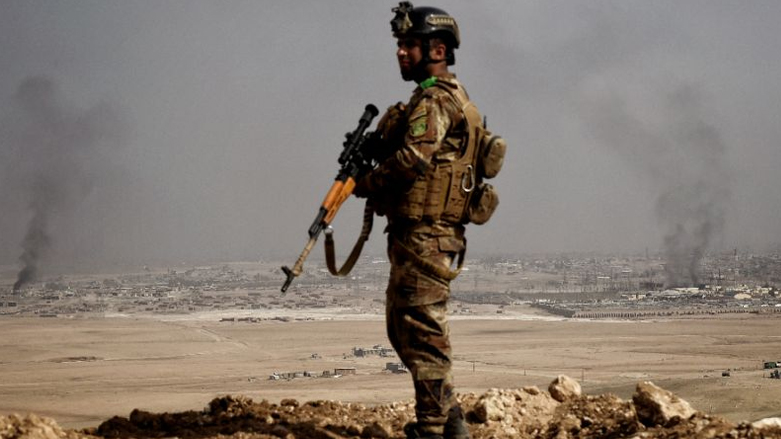Sinjar tension cools as local Yezidi militia meet with Baghdad

ERBIL (Kurdistan 24) – The Iraqi government on Thursday affirmed that the situation in the city of Sinjar was “under control,” days after multiple clashes erupted between the national army and a Yezidi (Ezidi) militia group with close ties with the Kurdistan Workers’ Party (PKK).
On Sunday, the Sinjar Resistance Units (YBS) exchanged fire with Iraqi soldiers in the area of Hasawik near the Syrian border, part of the Snuny subdistrict in Sinjar. There were five casualties on the militia’s side, with two later confirmed dead, while two soldiers were killed according to initial reporting.
The issues that led to the initial conflict are yet unclear, although both sides reportedly had disputes over the administration of the border crossing that leads to Syria.
The day following the first clashes, Baghdad deployed three brigades from Mosul to a town in Sinjar and clashed with the YBS militias once again after the latter refused to lay down their weapons and hand over their bases to the Iraqi Army.
In a bid to assess the situation and ease tensions, Army Chief of Staff Othman al-Ghanimi traveled to Sinjar, leading a military and security delegation to meet with local leaders, including YBS commanders, as well as government officials stationed in the area.
On Tuesday, Ghanimi reported to Iraqi Prime Minister Adil Abdul-Mahdi, with the latter stating at a press conference later that day that his government had taken “balanced” measures to control the situation.
“Our relationship with Turkey is good, we do not want to become a party to the conflict,” Abdul-Mahdi said.
Fighting a decades-long insurgency with Ankara over Kurdish rights and self-rule, the PKK is considered by Turkey to be a terrorist organization, and Ankara has vowed to take the fight against them, along with its affiliates, wherever it might lead them.
However, officials in the Kurdistan Region and civilians in the affected areas have long urged both Turkey and the PKK to stop using villages as their battleground. Hundreds of towns along the Turkish-Kurdistan border have been evacuated due to the ongoing violence.
“We have taken control of the situation there completely…we will not make ourselves enemies [to anything but] terrorism, injustice, and dependence,” Abdul-Mahdi claimed.
The media cell reaffirmed that “the security situation of Sinjar was under control, supported by and in cooperation with the local citizens and forces of the district.”
Despite close administrative ties with the PKK, the YBS are widely believed to be involved with the Iran-backed Hashd al-Shaabi militia group, which, reportedly, funds and arms them.
Editing by Nadia Riva
